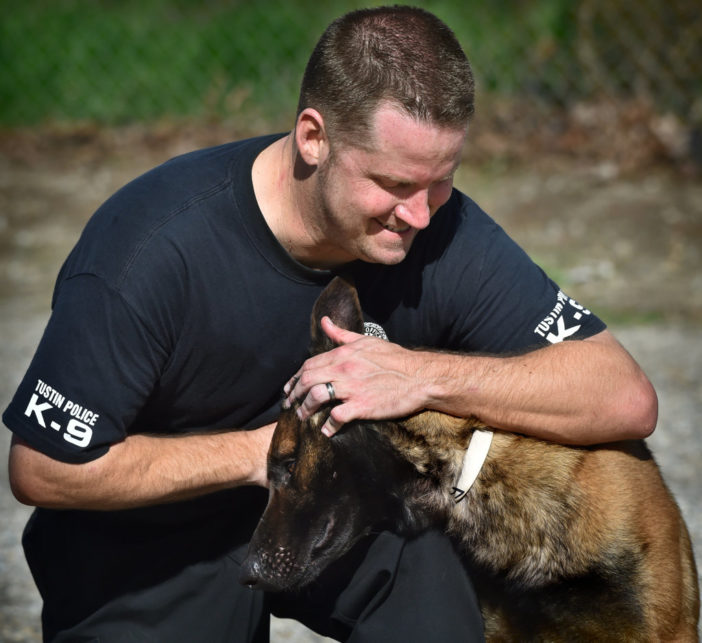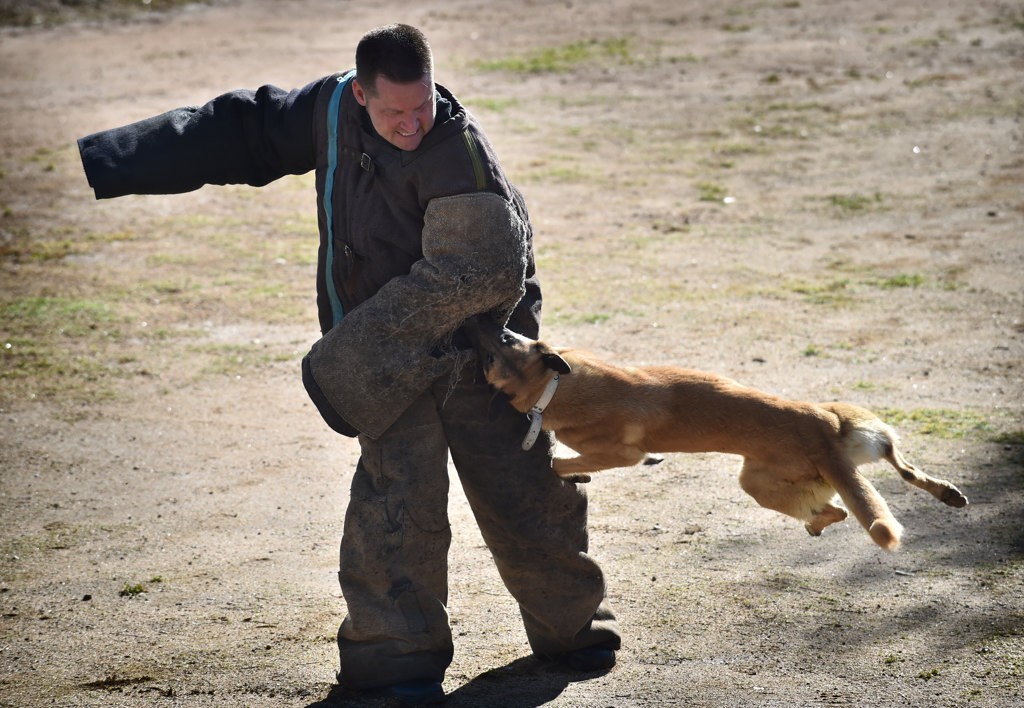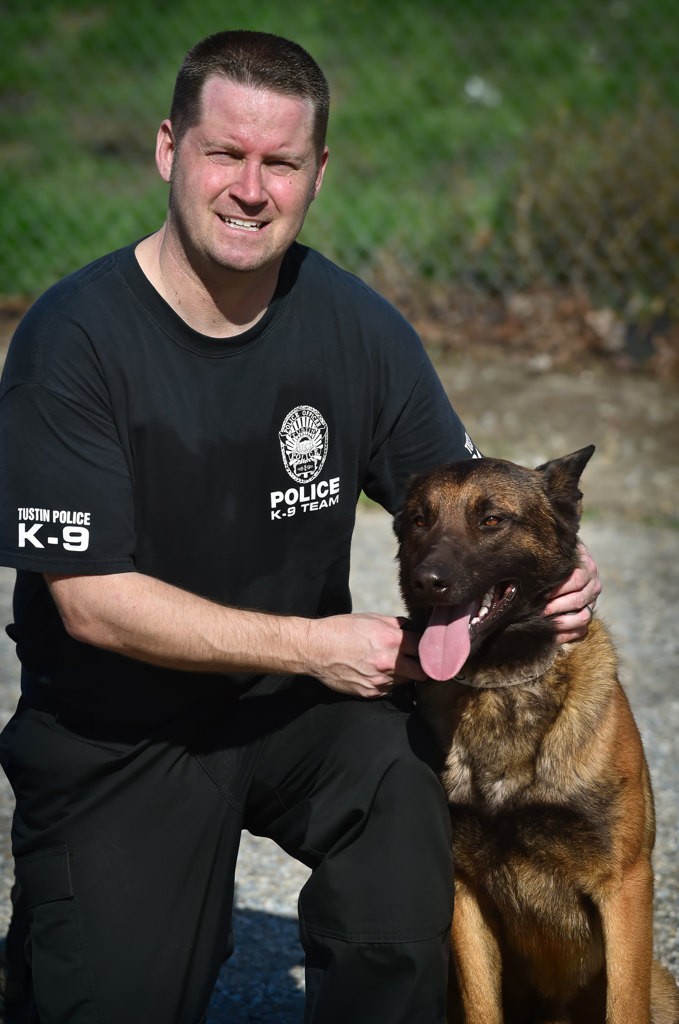Tustin PD Officer Chuck Mitchell has a new partner, and his name is Kingsley.
The 2 1/2-year-old Belgian Malinois was selected Jan. 19 by TPD’s K9 team, which now includes Mitchell.
“When you want to become a K9 handler, you often start out by working as a decoy for other handlers,” said Mitchell, adding that he’s been a decoy for several police K9s for eight years now.
A recent Thursday was no exception since Mitchell, wearing a full bite suit, was a decoy once again — but this time for his own prospective dog.
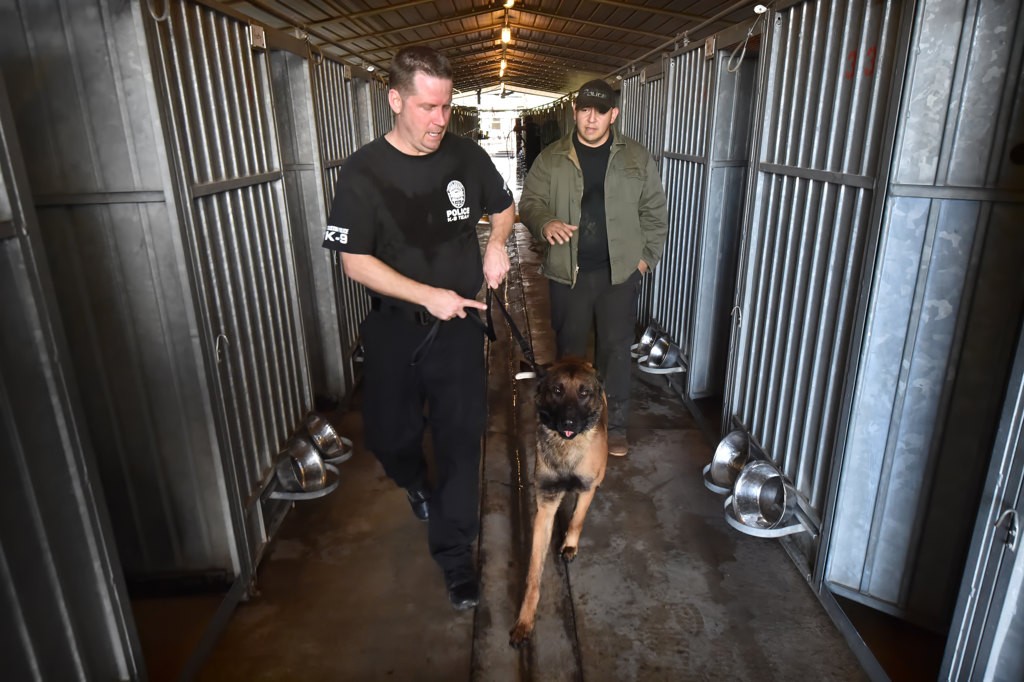
Tustin PD Officer Chuck Mitchell walks out with his new K9 partner Kingsley after choosing him from a variety of dogs at the Adlerhorst Police K9 Academy in Riverside. Tustin K9 Officer Rene Barraza, right, helped with the selection.
Photo by Steven Georges/Behind the Badge OC
Selecting a new dog for the TPD K9 unit means finding the right match for the agency and the handler, which requires a sort of field testing.
As part of the selection, retiring K9 handler Officer Rene Barraza, until recently one of two TPD handlers, would bring out a dog that had been pre-selected for the agency by trainers at Adlerhorst International, Inc. in Riverside. After walking the dog around, Barraza would then instruct the dog to apprehend Mitchell.
Each dog happily complied.
They then went into an unlit structure and then to an open field to get a better sense of the prospective police K9.
“These dogs, we’re sending them into the unknown,” said Barraza, who has worked as a handler for more than five years with his now-8-year-old Malinois, Bravo.
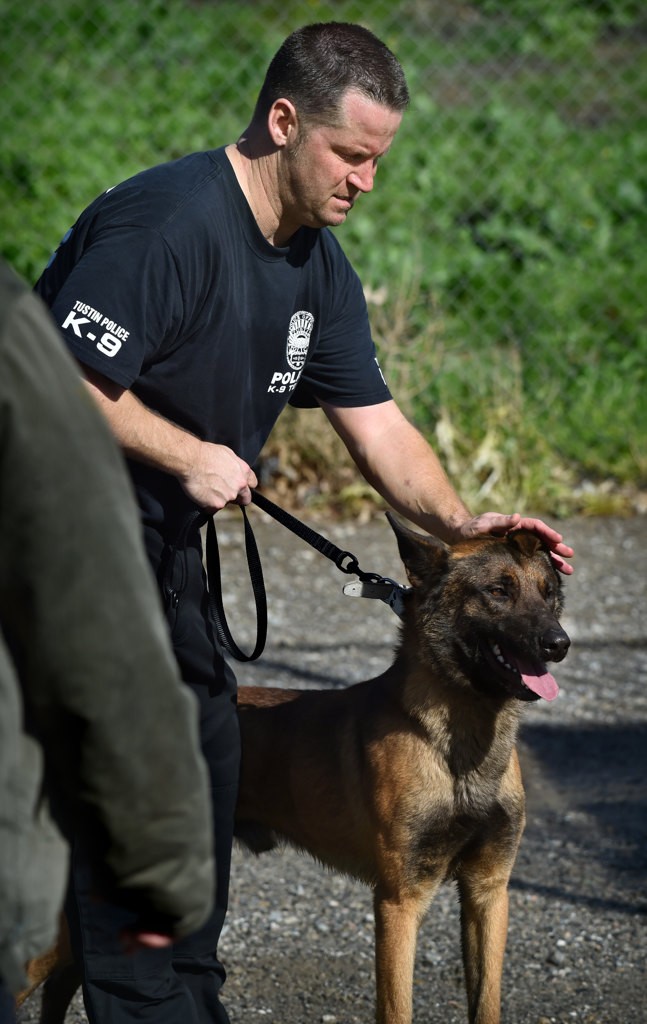
Tustin PD Officer Chuck Mitchell with his new K9 partner Kingsley.
Photo by Steven Georges/Behind the Badge OC
Part of the selection process involves sending the dogs into a dark structure with slick floors in order to test each dog’s fear in such situations.
“They have to be able to fight through any fears which they may encounter in real field situations,” Barraza said, adding that some issues can be worked with, but some cannot.
And some dogs may make great police dogs, but it wouldn’t work for the particular needs of the agency or for Mitchell.
While apprehension (and, if all goes well, narcotics detection training) work will be part of the new K9’s job description, the TPD K9 Unit also does a lot of community outreach with its dogs – going to schools and interacting with children, for instance. And that requires some good social skills.
“We want to make sure our dogs are sociable,” said K9 unit coordinator Sgt. James Brabeck, adding that part of the selection checklist for each dog is seeing how he or she does with having his or her front paws grabbed.
Barraza said being able to touch the dogs easily also is important for regular health inspections. A handler has to be able to check the dog’s teeth regularly, since broken teeth can be part of the job.
“You don’t want a hot head,” he said.
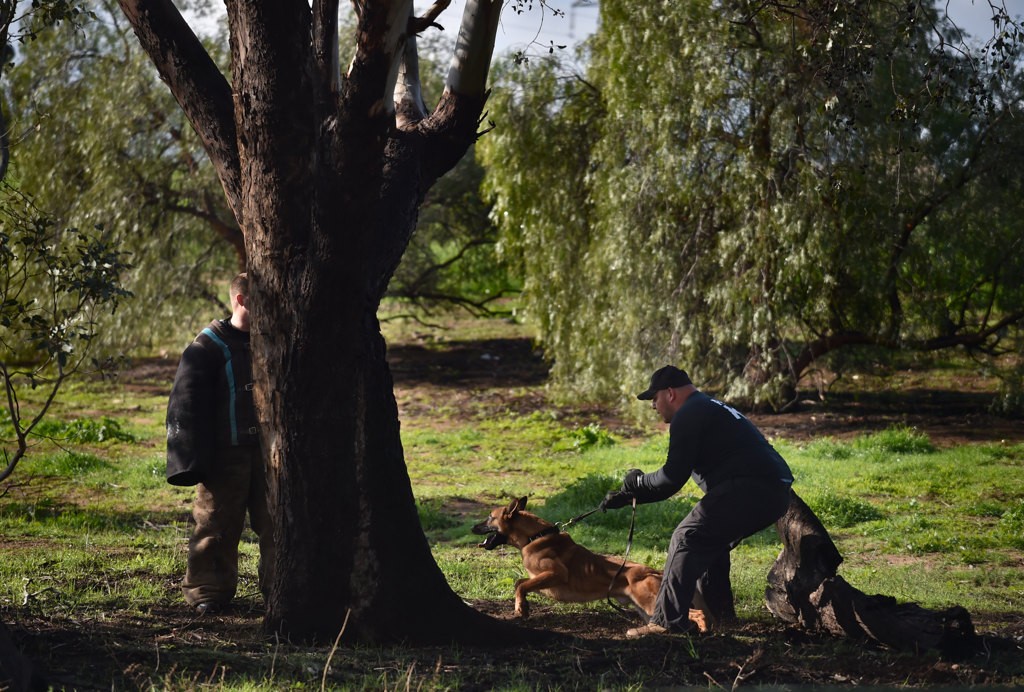
Tustin PD Officer Rene Barraza, right, tests a K9 named Storm at the Adlerhorst Police K9 Academy in Riverside. Although Storm did well, the Tustin PD chose another dog.
Photo by Steven Georges/Behind the Badge OC
It’s a careful balance between social skills and drive – which is another component of a police dog’s work. Play drive (also prey drive) is that wild instinct a dog has to catch prey. It runs higher in some dogs than others. K9 handlers want dogs with a higher drive, because that is what makes the dog want to run after a suspect when commanded.
But a highly driven dog also has to listen and obey his handler.
“We’re looking for obedience, too,” Barraza said. “We need to have control of the dog.”
And the dog also must have a good defensive drive – meaning he will not give up even if the suspect is physically resisting by hitting or kicking the K9.
“We want them to stay and fight,” Barraza said.
After a couple of hours of testing out several dogs, Mitchell made his decision and picked Ozzy, who later would be named Kingsley. The Kingsley Foundation and The Muth Foundation paid for Kingsley, whose full name is Kingsley Jensen but who will go by Kingsley for work.
“He was the first one we tested … a good play drive and a real strong bite,” said Mitchell. “I liked him right away.”
The feeling might just have been mutual judging from the way Kingsley leaned up against Mitchell’s leg, sitting patiently as Mitchell talked.
“I have a good feeling about this one,” Brabeck said.
Mitchell and Kingsley would have the weekend to bond before returning back to Adlerhorst for a six-week K9 handler academy. Barraza and Bravo retired Feb. 20, and once Mitchell and Kingsley complete their training, they can get to work in the field.
Barraza, who will be going back to patrol, will miss being a K9 handler.
In his career, Bravo made five suspect apprehensions with bites, had countless suspects surrender and helped make several narcotics arrests. One of his more recent finds was of a car loaded with methamphetamine and heroin.
Barraza’s favorite story about a suspect giving up was when Bravo’s presence – “65 pounds of fury” – brought a 350-pound suspect to tears.
“If I could stay here my whole career, I would,” said Barraza.
 Behind the Badge
Behind the Badge
